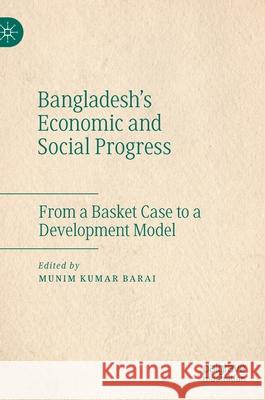Bangladesh's Economic and Social Progress: From a Basket Case to a Development Model » książka
topmenu
Bangladesh's Economic and Social Progress: From a Basket Case to a Development Model
ISBN-13: 9789811516825 / Angielski / Twarda / 2020 / 426 str.
Bangladesh's Economic and Social Progress: From a Basket Case to a Development Model
ISBN-13: 9789811516825 / Angielski / Twarda / 2020 / 426 str.
cena 603,81
(netto: 575,06 VAT: 5%)
Najniższa cena z 30 dni: 578,30
(netto: 575,06 VAT: 5%)
Najniższa cena z 30 dni: 578,30
Termin realizacji zamówienia:
ok. 16-18 dni roboczych.
ok. 16-18 dni roboczych.
Darmowa dostawa!
Kategorie:
Kategorie BISAC:
Wydawca:
Palgrave MacMillan
Język:
Angielski
ISBN-13:
9789811516825
Rok wydania:
2020
Wydanie:
2020
Ilość stron:
426
Waga:
0.70 kg
Wymiary:
21.01 x 14.81 x 2.54
Oprawa:
Twarda
Wolumenów:
01
Dodatkowe informacje:
Wydanie ilustrowane











